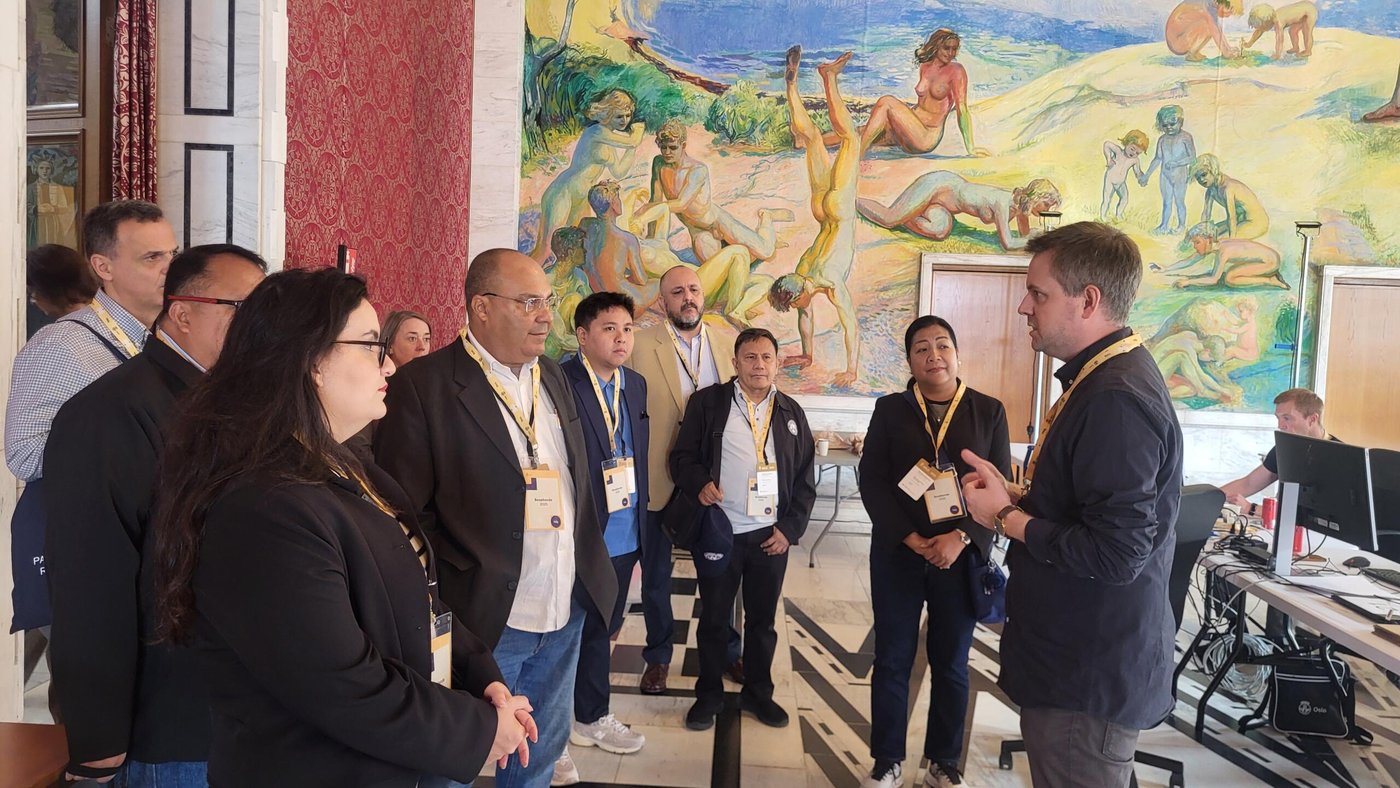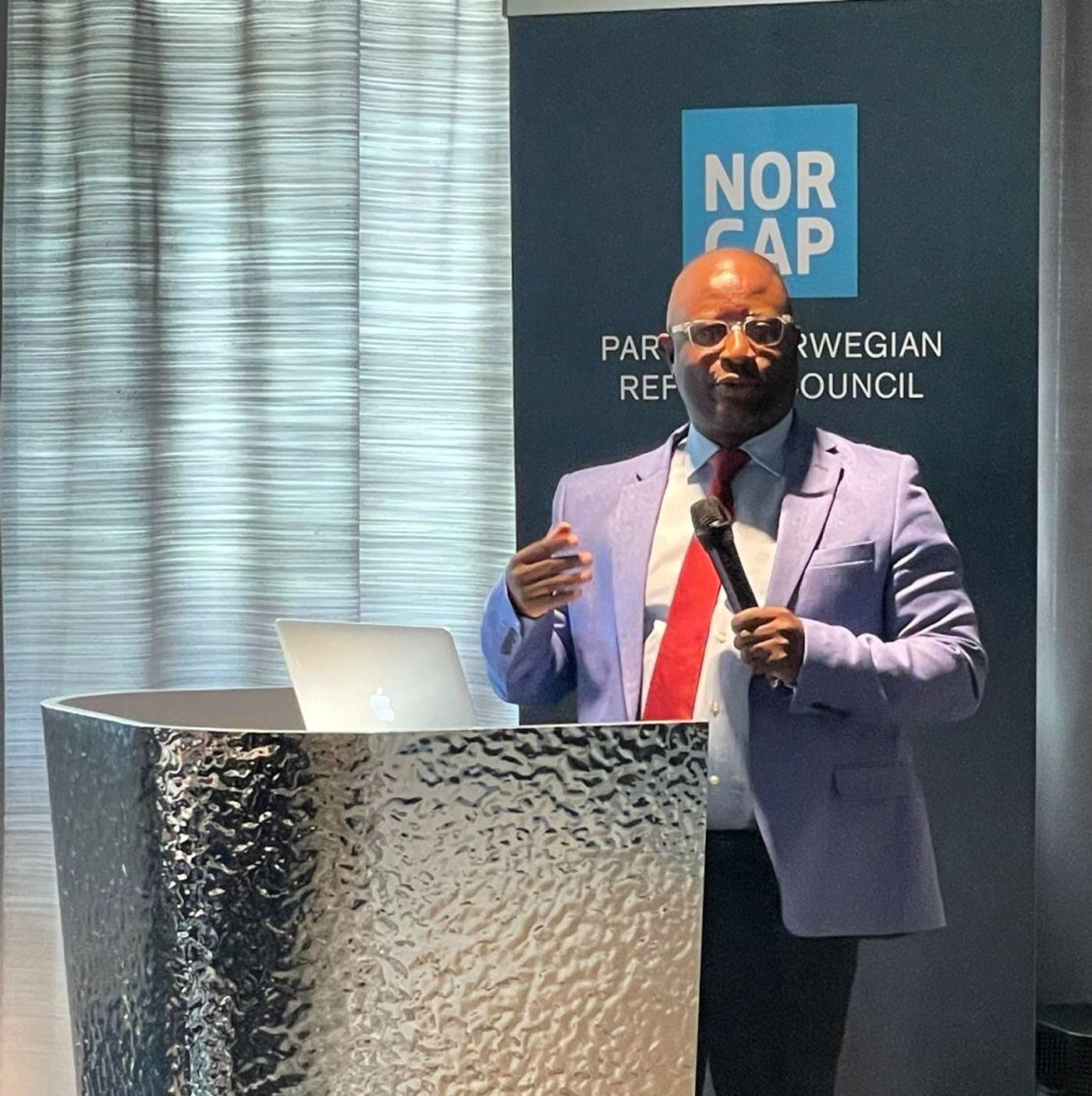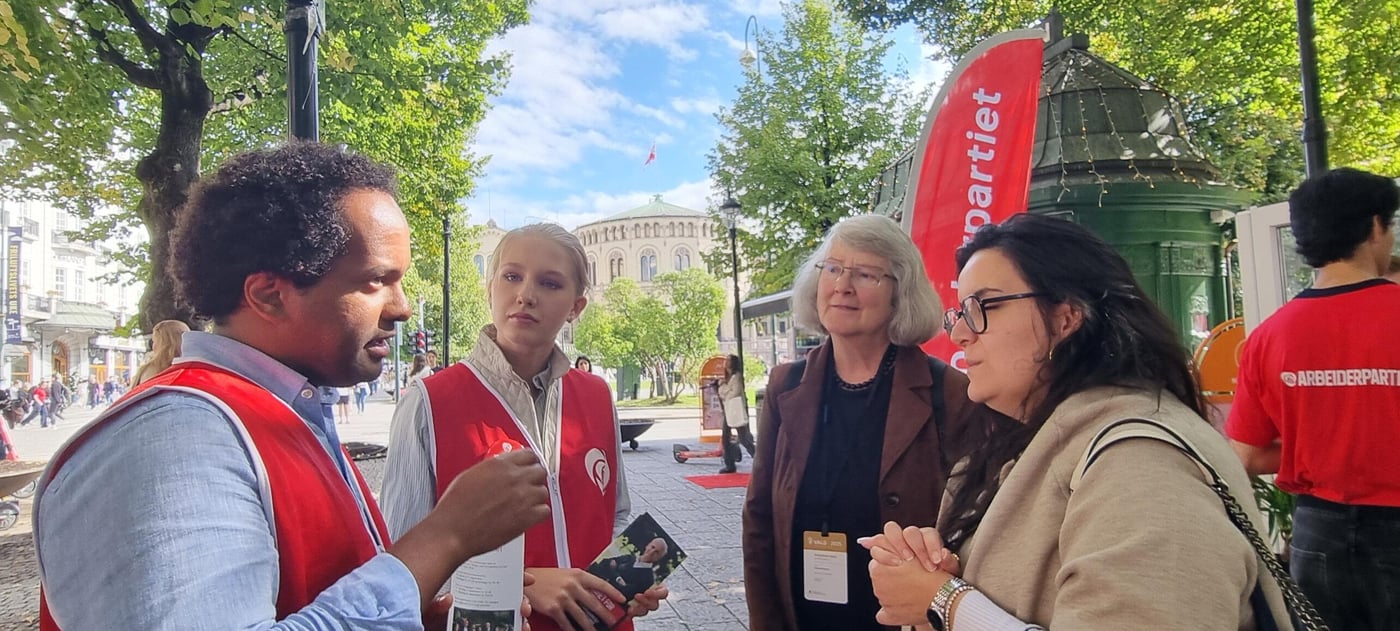As part of a long-standing tradition, NORCAP hosted 13 international observers for the elections, hailing from countries as far apart as Peru, Albania, Montenegro, the Philippines, São Tomé and Principe and the African Union. Most participants came from national election commissions, independent institutions responsible for administering elections in their own countries.
Over six days, the delegation met with a wide range of stakeholders. They heard from the Norwegian Ministry of Local Government and Regional Development and the election administration, members of political parties, academics, and representatives of civil society.
They also gained insights from the media through the Norwegian state broadcaster, NRK, that explained how it approaches election coverage, stressing its editorial independence and role as a watchdog. Observers compared this with their systems at home, such as in Montenegro, where every political party is legally guaranteed two minutes of airtime regardless of size and influence.

Reforms shaped by international recommendations
The 2025 Parliamentary Elections were the first held under the new Election Act. Several of the reforms, including the establishment of a National Electoral Committee, followed recommendations made by international observers in previous elections.
The delegation met with the chair of the new National Electoral Committee, which was created to handle complaints about how elections are run, from preparations and voting day to the counting of ballots. This committee has the last word, and its rulings cannot be appealed in court. The only exception, determined by the Supreme Court, is the decision of whether or not the elctions are legitimate. The committee’s chair, Ørnulf Røhnebæk, underlined that while trust in Norwegian elections is very high, having strong independent institutions is essential for the rare cases when that trust is put to the test.
Advance voting and election day
On Election Day, the observers visited polling stations in Oslo, to observe voting, closing and the counting of ballots, as well as to examine procedures and accessibility.
Despite the Election Act now stating that all polling stations should be accessible to people with various disabilities, observers noted that not all polling stations fully met these standards. In line with universal design as a key principle for disability inclusion, the observers also called for voting booths that work for everyone, without needing special setups for people with disabilities.
“This marks the final transition from just inclusion to universal design”, says Tawanda Chimhini, election expert at the Department of Political Affairs, Peace and Security, African Union Commission.

The observers also discussed the growing dominance of advance voting. A majority of Norwegians now cast their ballot before election day, a trend that increases convenience and participation but also raises new questions for the electoral management.
“With up to 70 % of the electorate casting their vote in advance, the resources spent, and staff hired for election day should be reconsidered”, says Maria Norina De Los Santos Tangaro-Casingal, Commissioner in the Republic of the Philippines Commission on Elections (COMELEC).
Transparency in the closing and counting of votes was another theme. The process is open to the public, but observers noted the lack of citizen presence in polling stations at this stage. “In other countries, such as on my continent, members of the public often attend in numbers to ensure credibility”, says Tawanda Chimhini from the African Union Commission.
Identified areas for improvement
On 9 September, the delegation met with State Secretary, Agnete Masternes Hanssen, at the Ministry of Local Government and Regional Development to present their findings. They praised Norway’s democratic traditions and high public trust but also pointed out areas of improvements.
One major concern was that many voters and election workers seemed not to be aware of the new system for handling complaints about the elections.
“When we asked about the new dispute-resolution mechanism, most voters and polling station officials were not aware of these changes”, says José Alfredo Pérez Duharte, Director of international cooperation and relations at the National Elections Board of Peru. He stressed that people need to understand how their rights are protected and recommended a strong public information campaign.
Fairness in campaigning was another topic. Norway does not have fixed rules for campaign periods, limits on donations or spending. Maria Norina De Los Santos Tangaro-Casingal, Commissioner in the Republic of the Philippines Commission on Elections (COMELEC), recommended clearer rules and limits to ensure equal opportunities for all parties.
On women’s representation in Norwegian politics, the observers were surprised to learn that the decision to include women on the lists is left entirely up to the political parties. Jona Josifi, Director of Out-of-Country Vote, Central Elections Commission of Albania, expressed that the absence of a legal obligation to include female politicians on party lists could be a potential future obstacle to women’s political representation.
Another recurring theme was the influence of digital technologies. Global threats such as cyber security, disinformation, and the use of artificial intelligence in campaigns are rising. To stay ahead, the observers suggested teaching digital skills, building stronger institutional capacity to counter disinformation, and developing expertise on new technologies before they can undermine trust.
Finally, the experts commended Norway’s gradual and consultative approach to reform. They cautioned against rushing into new regulations but stressed that reforms must be widely discussed with citizens and stakeholders to build lasting confidence.
“Norway’s elections are a model of trust, professionalism and inclusivity”, said José Alfredo Pérez Duharte from Peru and concluded that, as one of the world’s highest-ranking democracies, Norway has both an opportunity and a responsibility to set an example for how a democracy can continue to improve and adapt to emerging challenges while safeguarding public trust and engagement.



